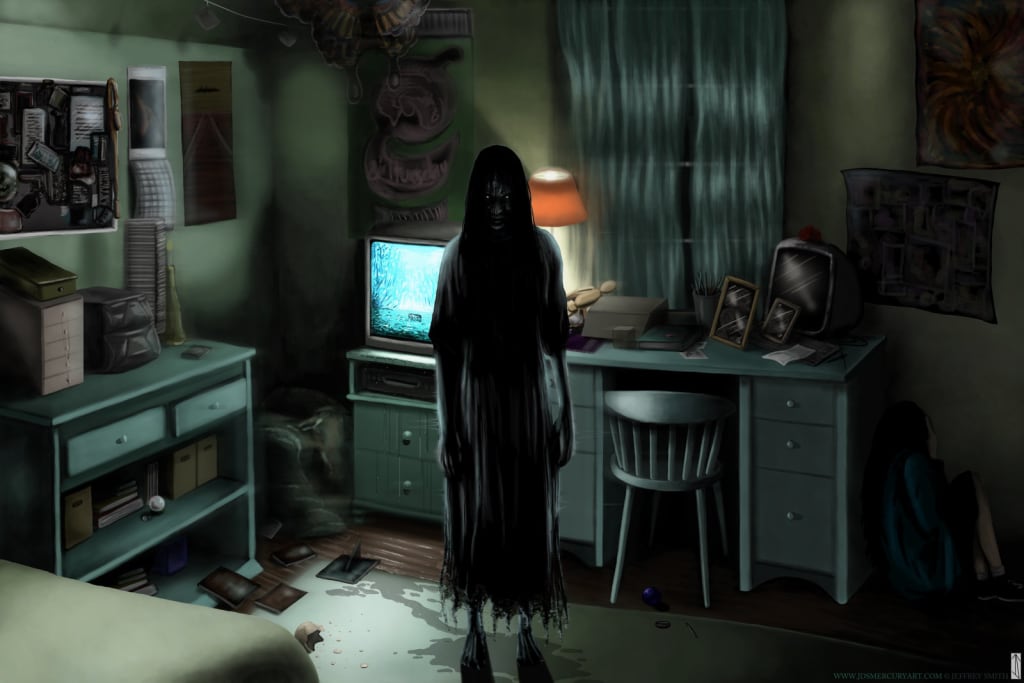How Can We Bring Horror Back into Horror?
It is rare to see a game that actually scares the heck out of you, and things don't seem to be getting much better.

In today's world, the horror video game genre is struggling. Well known games such as Resident Evil have turned into full fledged action games where you truly do not have to fear anything, and many others have simply become predictable.
It is rare to see a game that actually scares the heck out of you, and things don't seem to be getting much better. Now sure, there are some really nice indie titles out there, but even they run out of fuel as time goes on.
So, how can we fix this? Just how could we turn the genre around and bring it to its former glory? Well...
The Fear of Death
Dying in video games isn't as big of a deal as it used to be. Back in the day you were given a limited number of lives, a limited number of continues, and when you ran out, you would have to start over. You actually had to be careful, and often you had to practice to get better at the game so you could advance. Well, this is not the case in most games today.
Most games today have unlimited continues, and use checkpoint systems. If you die you simply restart form the last save point, and that's all there is too it. You can keep retrying the section over and over again until you've mastered it, and then you move on to the next section.
This is how most horror games of today are as well, and that really puts a damper on what used to put the "survival" in survival horror.
One of the things that made games like Resident Evil so scary is the fact that you had limited numbers of saves. You had to search the world, find items which allowed you to save, and then decide if they were worth using or not.
You had to really think about what the best course of action would be, and sometimes you would find it better to just hold onto the save, and take the risk of heading out once again.
As you walked around the mansion, police station, or city, you actually worried about your well being. No matter what you were doing in the game, you always knew in the back of your head, if you died, you were going to lose progress.
Sometimes this progress would only been ten minutes or so, but when you haven't saved for hours and you are backed into a corner by a monster of some kind, that's when the horror truly sets in. You know when you die, you will have to do it all over again.
At that moment you become desperate, and you do whatever it takes to survive. It no longer feels like a game, it becomes a real danger. This is something most games lack today, and bringing this element back could greatly help the genre.
The Fear of the Unknown
One thing that people are naturally scared of is the unknown. Whenever we see something that is different, most of the time we are scared of it.
Back in the 1990s a lot of shows, movies, and games used this to give people a good scare every once in awhile. "Nightmare fuel" (as it is called) made its way into a lot of non horror forms entertainment, and a lot of the time there were more effective ways of users engagement there than in actual horror movies or games.
People never saw it coming, and often they were scared of it because they didn't understand it. This is something a lot of horror games still try to do, but ultimately, they fail.
The thing is, a few "unknowns" just isn't enough. Most of the time in a horror game you'll come across something new and strange which will scare you, but by the time you've seen it ten or twenty more times, it no longer bothers you.
It becomes normal to you, and that fear you once had for it, is gone. The fear of the unknown is removed, and you soon start to expect everything the game throws at you. The nightmare fuel runs out. So, just how do you prevent this? You change it up, that's now.
Although it isn't a horror game, the PlayStation 4 exclusive "Beyond: Two Souls" is a great example of how a developer can continue to surprise you throughout the game.
Early on there is a scene which throws in a few jump scares, and makes you fear the unknown. The scene shows strange events which happened around the main character as a little girl, and it completely catches you off guard.
At one moment you're a little girl in your nice warm house, and the next, you are scared to even look in other rooms. Now sure, this scene isn't quite as scary the second time you see it, and once you see what's behind it you will no longer be scared of it for the rest of the game. At least, that's what the game wants you to think. Soon it throws a curve ball at you, and everything changes.
Once again you will find yourself scared of whats to come, and that's when you realize that there may still be more. You fear the unknown, and when the unknown shows itself, it isn't what you expected. The game constantly changes it up throwing you for a loop each time, and it is great.
If horror games of today could do this, it would give us a reason to actually fear them. Rather than reusing the same monsters over and over again in the same type of setting, give us something new around every turn.
Unique Settings
Besides using the fear of the unknown, one of the major aspects of any form of horror is the setting. A lot of games and movies tend to use creepy old buildings, and dark environment to keep the audience on edge. While this is fine and all, games could take it a lot farther as well.
Using dark colors, scattering trash around, and putting harmless objects such as a doll in the room is more than enough to disturb someone. Everything just looks so eerie, and we naturally want to leave. Throw in some low background music, some sound effects in the distance, and you've got yourself a nightmarish room even if nothing actually happens in.
These types of settings do work, and they do help the horror element in games, but they don't actually have to be this way. In reality, sometimes a "safe" area is more of a nightmare than the dark.
While dark dusty areas disturb all of us, light areas tend to erase our fears and make us feel safe. Sun shining, green grass, flowers, and upbeat music can remove all fear, but it can also be used to lure us into a false sense of security. Areas such as these have the potential of becoming a true nightmare. One minute you have that warm happy feeling inside, and the next, you are face to face with terror. It is something you never would have expected, and afterwards it will make you fear the light.
Each time you come across a "nice" looking section of the game, that constant fear will be there. Even if that area turns out to actually be a nice "safe" location, you will always know that you might not be so lucky next time. Because of this, the day can sometimes be scarier than the night.
Can we really pull it off?
There are many ways in which developers could bring horror back into the horror genre; however, it all comes down to if they will actually do it or not. They could make us fear death once again, they could constantly change up the game, and they could come up with very unique environments, but will they? That's the real question.
While indie developers are more likely to try new things, a lot of major developers prefer to play it safe. If they aren't sure it'll sell, often the game wont be made, and we are left with what we see today.
Most of the horror games which used to be kings of the genre have been turned into shooters or action games, for this very reason. It's sad to see, especially if you're a long time fan, but maybe one day developers will be willing to take more risks again. We can only hope.
About the Creator
Freddy Wong
I am a full-stack Web Application Developer and Software Developer, currently living in Austin, TX. I have a Bachelor of Science in Computer Science from Austin University, and my primary focus and inspiration for my studies is Development.






Comments
There are no comments for this story
Be the first to respond and start the conversation.